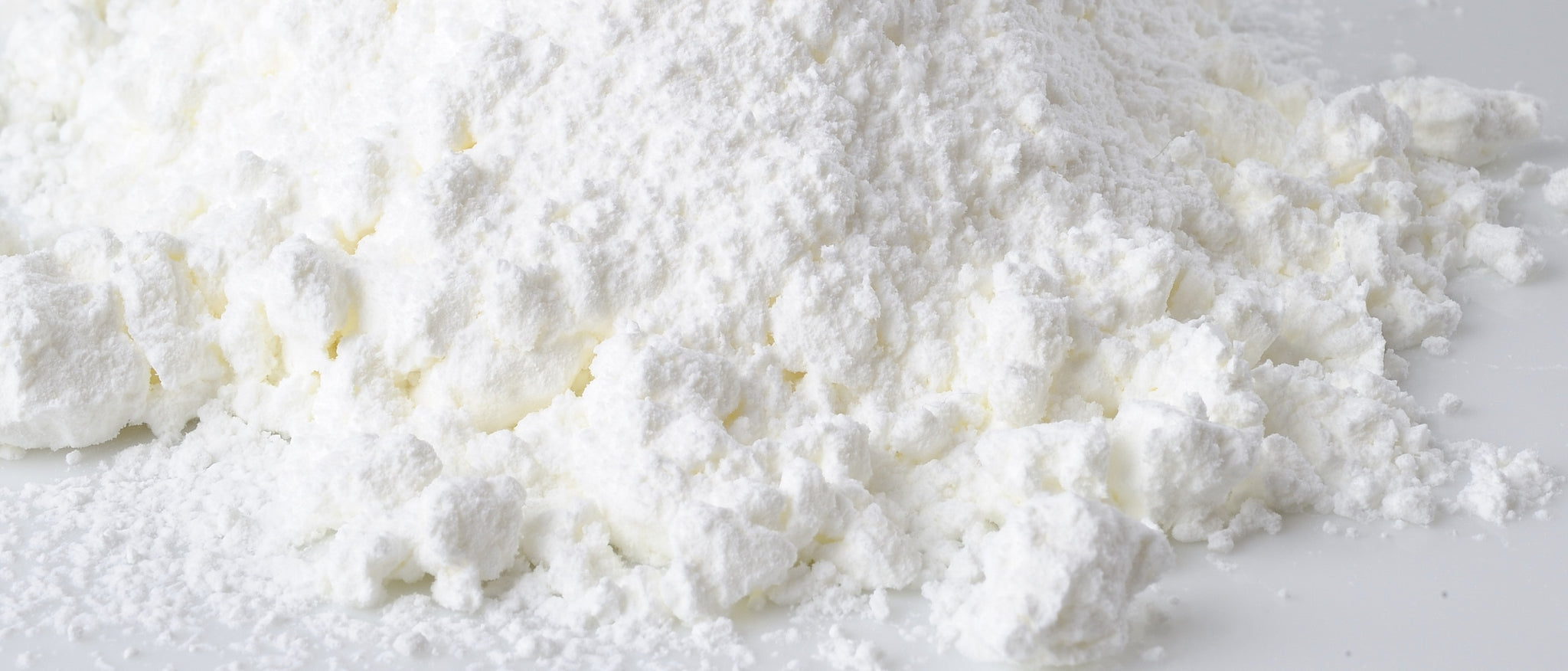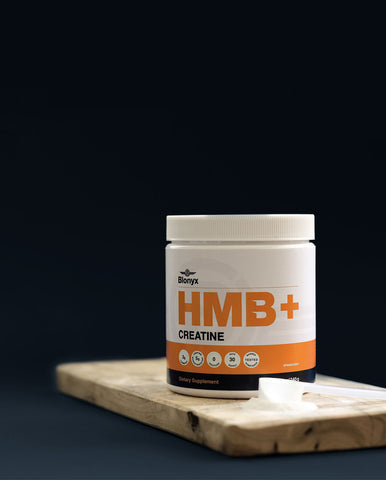Over the next five weeks, elite athlete Emily Beers will be investigating creatine: the most researched sports supplement on the market today. Sign up to our blog to make sure you don't miss an installment. Get to know what you're putting in your body.
I remember the first time I heard the word creatine. I was a basketball player in Grade 10 and some of the senior boys were talking about using it to bulk up and improve their game. The way they talked about it led me to believe it was some sort of anabolic steroid that would lead to major weight gain—a product I should stay far away from.

Turns out, I’m not the only one who was led astray by creatine, led to believe unfounded myths about what is actually one of the most scientifically-researched supplements in the world—a product that peer-reviewed study after study concludes is safe, effective and beneficial for athletes to consume.
A 2007 article in the The Journal of International Society of Sports Nutrition stated this: “Creatine monohydrate is the most effective ergogenic nutritional supplement currently available to athletes in terms of increasing high-intensity exercise capacity and lean body mass during training.”
Despite how much creatine has been studied academically—and deemed safe and effective for athletic performance—when you ask most people the question, “What is creatine?” you usually receive blank and confused stares.
I am reminded of the Jimmy Kimmel's satirical video about people’s ignorance about gluten—even those who claim to be gluten-free.
“A lot of people here don’t eat gluten because someone in their yoga class told them not to,” Kimmel joked—the point being most people who make the decision not to eat gluten have no clue what it is in the first place.
So, what is creatine?
In simple terms, creatine is a substance your body produces naturally in both the liver and pancreas. It is also obtained directly from food. Creatine is generally stored in the body as phospho-creatine (PCr) - creatine linked to a high energy phosphate molecule.
Where do we keep our creatine?
95% of the body’s creatine is stored in the muscle (although the brain and testes store some, too). On average, people store approximately 120 g of creatine per 70 kg of bodyweight, but we’re able to store up to 160 g in our body. We lose 1-2% of our creatine each day through our pee, and we replenish our stores by producing more naturally, combined with that from the food we eat (especially meat and fish).
Foods that are high in creatine:


So to benefit from creatine in your diet, you need to eat a crapload of meat and fish. Trace amount of creatine are also found in fruits and vegetables.
What is creatine for?
Simply put, your body needs energy to function. During high-intensity exercise your body has to turn adenosine triphosphate (ATP), your basic energy source in the muscle, to adenosine diphosphate (ADP), releasing energy for movement. There is a limited amount of ATP around however, so the body has to turn ADP back to ATP quickly in order to keep ATP stores up to maintain the intensity of movement. The quickest way to to convert ADP back into ATP is by breaking the high energy phosphate molecule off the PCr and using that.

So, in short, you need creatine to generate energy when you’re working out at high-intensity for short durations where you rapidly use up ATP. And when creatine stores become depleted, your ability to produce energy quickly, declines. This means, your power and strength during short efforts, like a 3RM back squat, suffers.
Creatine supplementation
The theory behind creatine supplementation is that increasing the amount of creatine in the body means you have more PCr available to quickly regenerate ATP for high intensity training, making you stronger and quicker.
Where the exact way creatine works has proven to be tricky to pin down, there have been more than one hundred peer-reviewed articles about creatine’s effectiveness as a supplement. On top of this, many have reported improvements in human exercise capacity.
It is also believed that increasing PCr from creatine supplementation speeds up the physical adaptations you get from training because creatine allows you to train at a higher level when it comes to both intensity and volume.
****
Over the next few months, I will be investigating creatine, looking at the facts and the myths of this both feared and revered supplement. I will explore the type of creatine available today and what the research has to say about them, as well as taking a close look at the manufacturing side of creatine supplementation.
Stay tuned for understanding creatine for performance Part 2
Part 2: Creatine’s history, it’s research record and it’s known side effects.
Part 3: Types of Creatine, which are the best, and are any dangerous?
Part 4: Making and marketing creatine supplements
Part 5: The myths and truths about creatine


